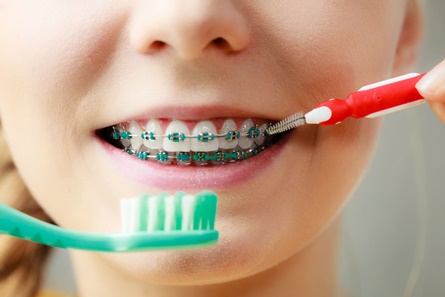Denture Appliance
What are different types of dentures?
Dentures come in various types, each designed to address specific dental needs and preferences. Here are some common types:
- Complete Dentures: Used when all teeth are missing in the upper or lower jaw. They rest on the gums and are removable.
- Partial Dentures: These are used when some natural teeth remain. They are designed to fill gaps by attaching to the remaining teeth using clasps or other connectors.
- Implant-Supported Dentures: These dentures are attached to dental implants surgically placed in the jawbone, providing a more stable and secure fit than traditional removable dentures.
The choice of dentures often depends on various factors, including the number of missing teeth, oral health, bone structure, and personal preferences. Consulting a dentist can help determine the most suitable type of denture for an individual’s specific needs.
What are alternatives to conventional dentures?
There are several alternatives to dentures depending on the specific dental situation and the patient’s preferences. Some alternatives include:
- Dental Implants: These are titanium posts surgically inserted into the jawbone, replacing the root of a missing tooth. They can support individual crowns, bridges, or even full arches of teeth. Implants provide a more permanent and stable solution compared to traditional dentures.
- Dental Bridges: These are fixed prosthetic devices used to replace one or more missing teeth by anchoring onto adjacent natural teeth or dental implants. They can be a good option if the neighbouring teeth are healthy and suitable for support.
- Implant-Supported Dentures can be an excellent solution for patients who find conventional dentures uncomfortable or loose. This hybrid method combines dental implants with a denture to improve stability, retention, and functionality.
The best alternative depends on factors such as the number of missing teeth, oral health, bone density, and individual preferences. Consulting with a dentist or prosthodontist will help determine the most appropriate option based on your specific situation and desired outcomes.
What are the different types of denture materials?
There are several types of materials used in making dentures, each with its own set of advantages and considerations. Some of the common materials include:
- Acrylic Resin: This is the most traditional and widely used material for dentures. It’s easy to adjust, repair, and can closely resemble natural gum tissue. Acrylic is also lightweight, making it comfortable for many patients. However, it may wear down faster than other materials and can be more prone to staining.
- Cobalt-Chromium Alloy: Often used for the framework of partial dentures, this metal is strong, thin, and lightweight. It provides durability and stability while being less bulky compared to other materials. It’s hypoallergenic and can be a good choice for those with metal allergies.
- Flexible Denture Material: Made from a flexible polymer, these dentures are lightweight, thin, and more comfortable for some patients. They tend to be more resistant to fracture, and their flexibility can make them easier to wear. However, they may not be suitable for all types of dentures or cases.
The choice of material often depends on various factors including the patient’s oral health, aesthetic preferences, budget, and the type of denture needed (partial or complete). Dentists will evaluate each patient’s specific needs and preferences before recommending the most suitable material for their dentures.

















